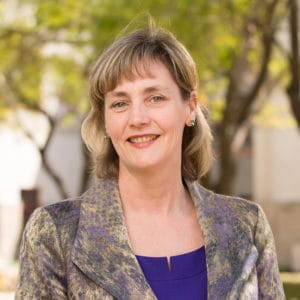Faculty
-

Lori Anne Ferrell
Dean, School of Arts & Humanities
Director, Early Modern Studies Program
Director, Kingsley & Kate Tufts Poetry AwardsResearch Interests
English Renaissance and Reformation Literature; Early Modern British and European History; Reformation Studies, Protestantism, the Bible and English-language Culture; the Bible in America; William Shakespeare
-

David Cressy
Research Professor of History
Research Interests
Early modern European history; Power, culture, and the state; Race, ethnicity, and nation
-

Patricia Easton
Vice President of Strategy
Professor of HumanitiesResearch Interests
Philosophy, History of modern philosophy, Philosophy of mind, History of science
Curriculum
Program Requirements
Coursework requirements complement and do not replace departmental requirements:
- Four courses in the early modern period, of which two courses must be in a discipline other than the one in which the student is receiving the degree. If a Latin reading course is taken in preparation for the language exam, students may use any credits awarded for this course toward their degree.
- For MA students, four Research Tools: Two are fulfilled through passing language exams in German or French and in Latin; one is fulfilled through attending a workshop/course in Paleography; and one is fulfilled by attending a course or workshop based upon bibliographic inquiry into the extensive collections of modern print and manuscripts housed in the Special Collections of The Claremont Colleges Library.
- For PhD students, five Research Tools: Three are fulfilled through passing language exams in German, French, and Latin; one is fulfilled through attending a workshop/course in Paleography; and one is fulfilled by attending a course or workshop based upon bibliographic inquiry into the extensive collections of modern print and manuscripts housed in the Special Collections of The Claremont Colleges Library.
Application Guidelines
The interdisciplinary concentrations in the School of Arts & Humanities are available as part of a master’s or doctoral degree program.